- ALL SERVICES
- • Salesforce Consulting Services
- • Managed Services
- • Simplification of Interfaces
- • Data Migration and Processing
- • Architectural Solutions and Scoping
- • Code Review, QA and Support
- • Applications Development
- • Pre-sales and Solutions Consulting
- • Technical Audit and Support
- • Custom Applications Development
- • AI Apps
BLOG
Salesforce Scheduler vs. Field Service Lightning: Which One Is Best for Your Field Service Needs?
• Date: May 2023 •
Estimated reading time: 5 minutes
Estimated reading time: 5 minutes
Subscribe for more useful content
We promise we'll not spam your mailbox!
By submitting you agree to receive a newsletter from Twistellar. You can unsubscribe anytime.
After the pandemic many companies had to reconsider the way they deal with customer service. Salesforce offers two powerful tools for helping companies in their field service operations: Salesforce Scheduler and Field Service Lightning.
However similar, the tools have different features and capabilities that make them suited for different use cases.
Here's a closer look at the differences between Salesforce Scheduler and Field Service Lightning:
Contents:
Salesforce Scheduler
Salesforce Scheduler is an add-on built into the Salesforce platform. It enables companies to schedule and dispatch appointments for field service technicians, track technician availability, and manage work orders.
Salesforce Scheduler simplifies the process of creating, modifying, and canceling appointments for both your customers and employees. It basically means that you can set specific topics, locations, and appointment durations.
In addition, you can create service resources that correspond to your employees' skills and knowledge, ensuring that your customers are consistently paired with the most suitable team member.

Salesforce Scheduler Interface
Some of the key features of Salesforce Scheduler include:
- Scheduling and dispatching: Salesforce Scheduler enables companies to schedule and dispatch in-store and virtual appointments taking into account technician availability, skills, and location.
- Customizable workflows: Companies can customize the workflows and processes for scheduling and dispatching appointments to meet their specific needs.
Field Service Lightning
Field Service Lightning enables companies to manage all aspects of their field service operations, including scheduling, dispatching, work order management, inventory management, and asset management.
Field Service Lightning is designed for companies that have a large number of field service technicians or that have complex scheduling and dispatching processes.

Field Service Lightning — Map Schedule
With Field Service Lightning, service reps and managers can:
- Manage work orders from creation to completion, track progress, update status, and capture customer feedback.
- Manage inventory levels, track stock movements, and optimize inventory replenishment.
- Manage customer assets, track asset history, and schedule preventive maintenance.
- Access their schedules, update work orders, and access customer information from their mobile devices using the Field Service Lightning mobile app.
- Benefit from automatically scheduled appointments based on predefined rules and criteria, such as technician availability, travel time, and customer preferences.
Key Differences Between Salesforce Scheduler and Field Service Lightning
The key difference lies in the scope of each tool: Salesforce Scheduler is primarily focused on scheduling appointments, while Field Service Lightning covers more functions, such as scheduling, dispatching, work order management, inventory management, and asset management.
Some other differences include:
- Scalability: Salesforce Scheduler is designed for companies with a small number of field service technicians or that have a simple scheduling process, while Field Service Lightning is designed for companies with a large number of field service technicians or that have complex scheduling and dispatching processes.
- Automation: While both tools support automated scheduling, Field Service Lightning provides more advanced automation features, such as automated scheduling based on customer preferences and predictive maintenance scheduling.
- Integration: Field Service Lightning provides deeper integration with other Salesforce tools, such as Sales Cloud and Service Cloud, enabling companies to manage their entire customer lifecycle from a single platform.
- Mobile app: Field Service Lightning includes a mobile app that enables field service technicians to access their schedules, update work orders, and access customer information from their mobile devices, while Salesforce Scheduler does not include a mobile app.
To wrap it up
In summary, Salesforce Scheduler and Field Service Lightning are powerful tools working on the same data model but solving different problems. Salesforce Scheduler suits the purposes of appointment automations, both for virtual or in-house operations. FSL, in turn, is used for help with more complex service operations.
If you are still not sure what tool is the best fit for your business, make sure to contact one of our experts.
Twistellar's team has carried out a number of industry-oriented projects and we are always open to discuss yours!
Our deep understanding of Salesforce platform ensures successful handling of projects in any domain
By submitting you agree to receive a newsletter from Twistellar. You can unsubscribe anytime.
Our Articles, News and Salesforce Overviews
Feeling like teaming up with us at Twistellar? We are excited too! Whether you'd like to customize your org, build a bespoke application or integrate a third-party tool, Twistellar is ready to help you.
Get in touch to discuss your Salesforce ideas!


